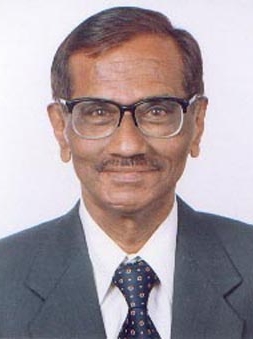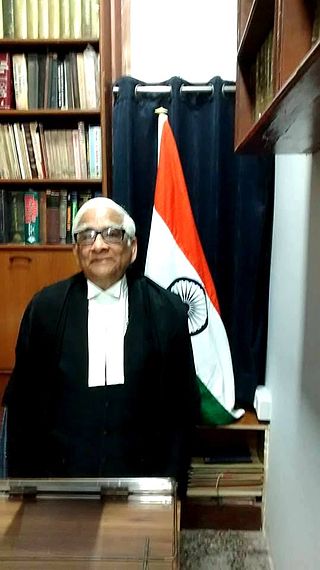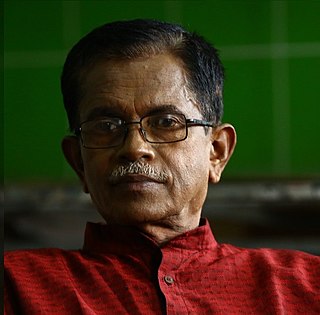The Uniform Civil Code is a proposal in India to formulate and implement personal laws of citizens which apply on all citizens equally regardless of their religion. Currently, personal laws of various communities are governed by their religious scriptures. Implementation of a uniform civil code across the nation is pursued by India's ruling Bharatiya Janata Party. Personal laws cover marriage, divorce, inheritance, adoption and maintenance. While articles 25-28 of the Indian Constitution guarantee religious freedom to Indian citizens and allow religious groups to maintain their own affairs, article 44 expects the Indian state to apply directive principles and common law for all Indian citizens while formulating national policies.

The Supreme Court of India is the supreme judicial authority and the highest court of the Republic of India. It is the final court of appeal for all civil and criminal cases in India. It also has the power of judicial review. The Supreme Court, which consists of the Chief Justice of India and a maximum of fellow 33 judges, has extensive powers in the form of original, appellate and advisory jurisdictions.
The chief instrument through which judicial activism has flourished in India is public interest litigation (PIL) or social action litigation (SAL). It refers to litigation undertaken to secure public interest and demonstrates the availability of justice to socially-disadvantaged parties and was introduced by Justice P. N. Bhagwati and Justice V.R. Krishna Iyer. It is a relaxation on the traditional rule of locus standi. Before 1980s the judiciary and the Supreme Court of India entertained litigation only from parties affected directly or indirectly by the defendant. It heard and decided cases only under its original and appellate jurisdictions. However, the Supreme Court began permitting cases on the grounds of public interest litigation, which means that even people who are not directly involved in the case may bring matters of public interest to the court. It is the court's privilege to entertain the application for the PIL.
The Fundamental Rights in India enshrined in part III of the Constitution of India guarantee civil liberties such that all Indians can lead their lives in peace and harmony as citizens of India. These rights are known as "fundamental" as they are the most essential for all-round development i.e., material, intellectual, moral and spiritual and protected by fundamental law of the land i.e. constitution. If the rights provided by Constitution especially the Fundamental rights are violated the Supreme Court and the High Courts can issue writs under Articles 32 and 226 of the Constitution, respectively, directing the State Machinery for enforcement of the fundamental rights.

Chonira Belliappa Muthamma was the first woman to clear the Indian Civil Services examinations. She was also the first woman to join the Indian Foreign Service. She was the first Indian woman diplomat as well. Later, she became the first Indian woman Ambassador also. She is remembered for her successful crusade for gender equality in the Indian Civil Services.
Christian personal law or family law regulates adoption, divorce, guardianship, marriage and succession in India. The provisions of canon law concerning marriage are recognised as the personal law of Roman Catholics in India. Marriages of Indian Christians are regulated by the Indian Christian Marriage Act, 1872. Christian personal law is not applicable in Goa; instead, the Goa civil code is the set of civil laws that regulate the residents of the Indian state of Goa. In India as a whole, there are religion-specific civil codes that separately govern adherents of different religions. Goa is an exception to that rule in that a single secular code governs all Goans, irrespective of religion, ethnicity or linguistic affiliation.
The Hindu Marriage Act (HMA) is an Act of the Parliament of India enacted in 1955 which was passed on 18 May. Three other important acts were also enacted as part of the Hindu Code Bills during this time: the Hindu Succession Act (1956), the Hindu Minority and Guardianship Act (1956), the Hindu Adoptions and Maintenance Act (1956).
India does not recognise same-sex marriage, civil unions or other forms of partnerships, but provides some limited legal recognition to cohabiting same-sex couples in the form of live-in relationships. Several same-sex couples have married in traditional Hindu ceremonies since the late 1980s; however, these marriages are not registered with the state and couples do not enjoy all the same rights and benefits as married opposite-sex couples. The Supreme Court of India in August 2022 provided social security rights to those in same-sex live-in relationships while also recognising same-sex couples as being part of a "family unit".

Bal Patil was a Jain scholar, journalist, social activist and Jain minority status advocate from Mumbai, Maharashtra. He was appointed as a member of State Minority Commission by the Govt. of Maharashtra from 2001 to 2004. He was the Secretary-General of All India Jain Minority Forum, New Delhi—a position he held until his death—and was an ardent advocate of minority status for Jainism. The Jain minority cause gained prominence when he petitioned the Supreme Court of India for the recognition of Jain religious minority status on par with other Indian minorities as per the two recommendations by the National Minorities Commission. He was also the first non-medical President of the National Society for the Prevention of Heart Disease & Rehabilitation, Mumbai. He has also authored many books on Jainism and presented several papers at various seminars and conferences.

The Marriage Act, 1961 is an act of the Parliament of South Africa governing the solemnisation and registration of marriages in South Africa. It does not deal with the dissolution of marriages, which is governed by the Divorce Act, 1979, or with matrimonial property regimes and the financial consequences of marriage, which are governed by the Matrimonial Property Act, 1984. Some issues relating to marriage remain governed by the Roman-Dutch common law because they have never been addressed by Parliament.

Secularism in Bangladesh is known as "neutrality of religion" under Bangladeshi law. In the Constitution of Bangladesh, secularism is mentioned in the preamble as one of the fundamental principles of Bangladeshi law. Article 8 enshrines secularism as one of the fundamental principles of state policy. Article 12 elaborates further on secularism and freedom of religion.
Lily Isabel Thomas was an Indian lawyer who initiated improvement and change to existing laws by filing petitions in India's apex court, the Supreme Court of India and regional courts. Her petitions resulted in changes to laws to prevent convicted politicians getting elected, the addition of a new marriage law and protections for parliamentarians. She was hailed most notably for petitioning to amend the Representation of the People Act, 1951.

Subodh Markandeya is a senior Indian lawyer, author and judicial activist. He primarily practices at the Supreme Court of India, but also appears in various high courts. He has served as the standing counsel for Government of India, Life Insurance Corporation of India (LIC), State of Uttar Pradesh, Uttar Pradesh Financial Corporation (UPFC), Uttar Pradesh State Electricity Board (U.P.S.E.B.), Uttar Pradesh Jal Nigam and numerous developmental authorities. He was appointed 'amicus curiae' by the Supreme Court in the 'Tihar Jail Enquiry' (1982–85).

Sarla Mudgal v. Union Of India is a Supreme Court of India case. Its judgement in 1995 laid down the principles against the practice of solemnizing second marriage by conversion to Islam, with first marriage not being dissolved. The verdict discusses issue of bigamy, the conflict between the personal laws existing on matters of marriage and invokes article 44 of Indian Constitution. It is considered a landmark decision that highlighted the need for a uniform civil code.

Navtej Singh Johar &Ors. v. Union of India thr. Secretary Ministry of Law and Justice (2018) is a landmark decision of the Supreme Court of India that decriminalised all consensual sex among adults, including homosexual sex.

T. G. Mohandas is an Indian lawyer, social critic, writer, journalist and television presenter from Kerala. Mohandas was the state convener of Bharatiya Janata Party's Intellectual Cell and the General Secretary in 1997 of Bharateeya Vichara Kendram and its vice-president in 2006 and served also as General Manager of Ayodhya Printers, a company owned by the Rashtriya Swayamsevak Sangh (RSS).

Arun Kumar &Anr. versus Inspector General of Registration&Ors. (2019) is a decision of the Madras High Court which recognised trans woman as a "bride" within the meaning of the Hindu Marriage Act 1955 and prohibited genital-normalizing surgery for intersex infants and children except on life-threatening situations.

Ujjawal &Anr. versus State of Haryana&Ors.(2021), a case where Punjab and Haryana High Court, refused to provide police protection to a couple facing threat to their lives and personal liberty, citing potential disruption to "social fabric of the society."

Supriyo a.k.a Supriya Chakraborty & Abhay Dang v. Union of India thr. Its Secretary, Ministry of Law and Justice & other connected cases (2023) are a collection of landmark cases of the Supreme Court of India, which were filed to consider whether to extend right to marry and establish a family to sexual and gender minority individuals in India. A five-judge Constitution Bench, consisting of Chief Justice of India D.Y. Chandrachud, Justice S.K. Kaul, Justice S.R Bhat, Justice Hima Kohli and Justice P.S. Narasimha, heard 20 connected cases brought by 52 petitioners.
The Foreign Marriage Act, 1969 is an Act of the Parliament of India enacted on 31 August 1969. It was enacted due to the recommendations of the Third Law Commission with the object of streamlining the law relating to recognition of marriages solemnized outside India between Indian citizens, or an Indian citizen and a foreign citizen.









